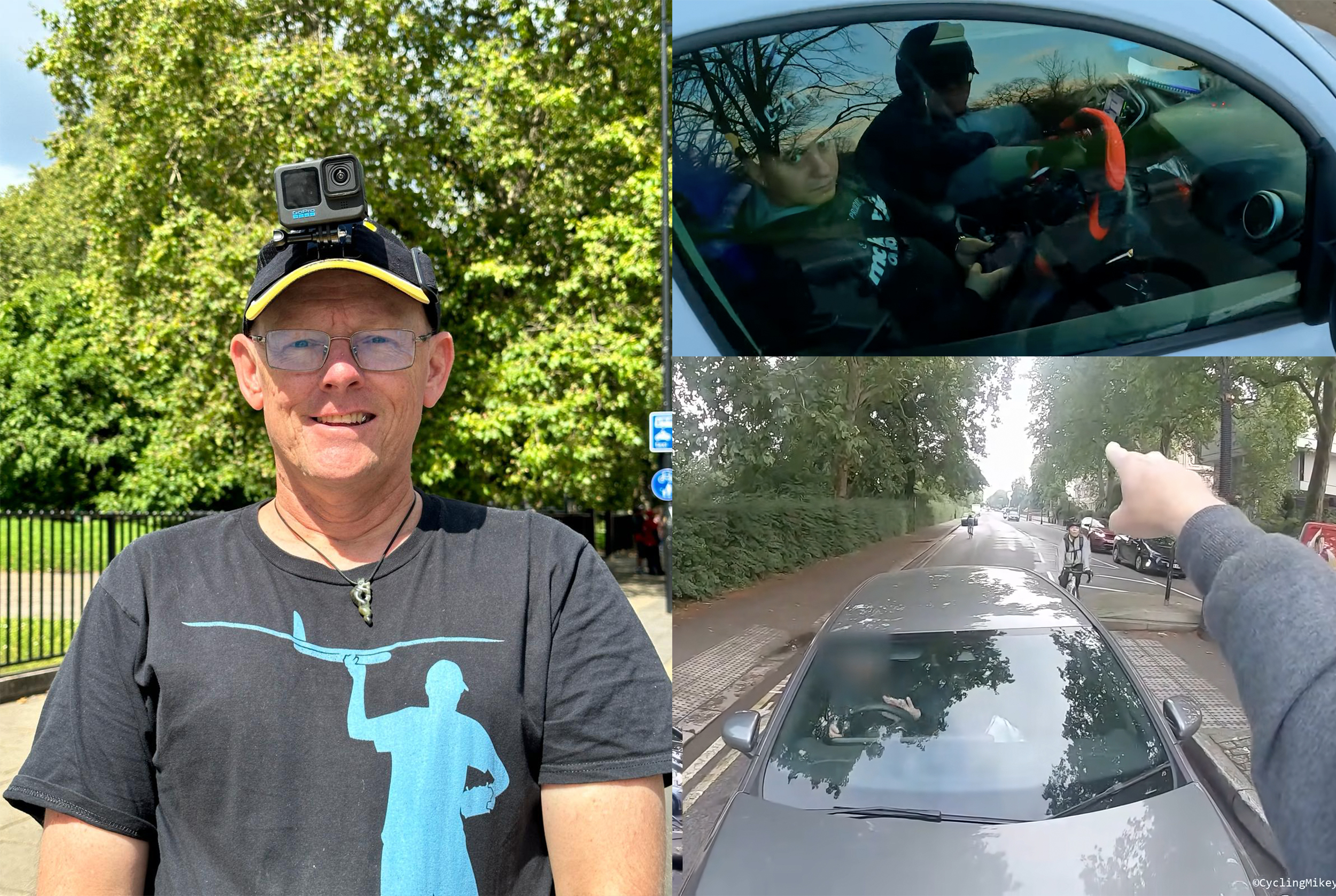
If you have spent any time on cycling Twitter, you've probably come across CyclingMikey. Invariably, it will be some form of abuse targeted at the cyclist-YouTuber, real name Mike van Erp, who regularly riles the car-driving community. This week, it was a video of an unknown cyclist fighting a taxi driver in Yorkshire, with the caption "Taxi driver has snapped at Cycling Mikey!" (spoiler, CyclingMikey was nowhere near Yorkshire at the time). This is the kinder end of the stuff he receives.
"I'm like marmite," Van Erp tells Cycling Weekly. "Some people love what I do, and some people hate it. The people that hate it tend to be younger males with driving licences. There's some really, really grim stuff. Endless abuse."
There are death threats, badly photoshopped memes, even faked conversations to try and provoke him. Cycling Weekly has seen this abuse, and we can confirm that it's horrific and personal; we see no merit in repeating any of the diatribe here.
His crime, the reason for so much abuse? Van Erp is one of the most high-profile cyclists with helmet cameras, who report the illegal things they see on the road, and upload their videos to YouTube and other social media.
He has reported as many as 1,700 road users - mostly drivers, but not all - for breaking the law on the road. This could be things like running through a red light, or using a phone while behind the wheel of a car. The Dutch national, a professional carer, has a spreadsheet which tracks all of the incidents, from car make and model, to the outcome, whether that's points on a licence, or even disqualification.
"I don't have an "us vs them" [mentality] because we know we're the same," Van Erp explains. "I don't hate any of the people I catch. I don't like their behaviour, but I don't hate them. They're just human beings. They see it as cyclists attacking drivers, but it's not. I've reported cyclists who have broken laws before too. It's just physics too, you could stop all bad cyclists, but there wouldn't be that much measurable change to road collisions.
"Driving a car makes people less well behaved and more likely to break the law. Because you're inside a metal cage with protection, people think they're different. No reaction, no traction. I see the abuse as us having an opinion, and they're fighting us, because they can't bear it. It's a measure of success, sadly, even if it feels very wrong to re-wire my head that way."
Van Erp has achieved notoriety for catching famous figures like Chris Eubank and Guy Ritchie breaking the rules, but it is the level of casual lawbreaking which catches the eye. "You do see drivers regularly that are really distracted and doing stupid stuff because of their phone," he explains. His father was killed by a drunk driver when he was 19, he has faced the full reality of what driving while distracted can do.
“I just like to think that with the power of one I’m trying to change a little bit of road safety," he told The Guardian two years ago. Most people who cycle realise that bad driving is largely tolerated by society. It’s not considered a really serious thing. Yet it’s claiming 1,800 people’s lives a year in the UK alone, and 27,000 are seriously injured. That’s a quite serious toll, isn’t it?”
Van Erp, who was in the Netherlands when speaking this week, says that while you get bad drivers everywhere, he doesn't feel like he needs to record while there. "It's probably more a thing of the more primitive road cultures, like the UK, Australia and the US," he says.
He started with a camera which took two AA batteries, well before the modern-day opportunity to film with a GoPro and report things to the police. Back then "no one believed us when we told them how drivers were behaving". Now, the truth is hard to hide from.
However, that truth makes many people angry.
"In the UK, cyclists are [seen as] the cockroaches of the road," Van Erp says. "It's the temerity of a cockroach of the road to tell car drivers off. It's the UK psyche really. Cyclists are perceived to be bigger lawbreakers, even though we're less, so it seems uppity to tell drivers that they're breaking the law.
"Because of road tax [which was abolished in 1936], a lot of drivers act like they own the road and they're not very keen to share it. Getting corrected by a cyclist in doubly painful, because some of them feel like we don't belong on the road."
His approach to the abuse he receives is simple - "mute and block" - but one wonders what it says for the so-called culture war that one man receives much abuse. As he points out, it's not his fault: "Car drivers were angry long before the cameras were on. They're exactly why I got the cameras."







